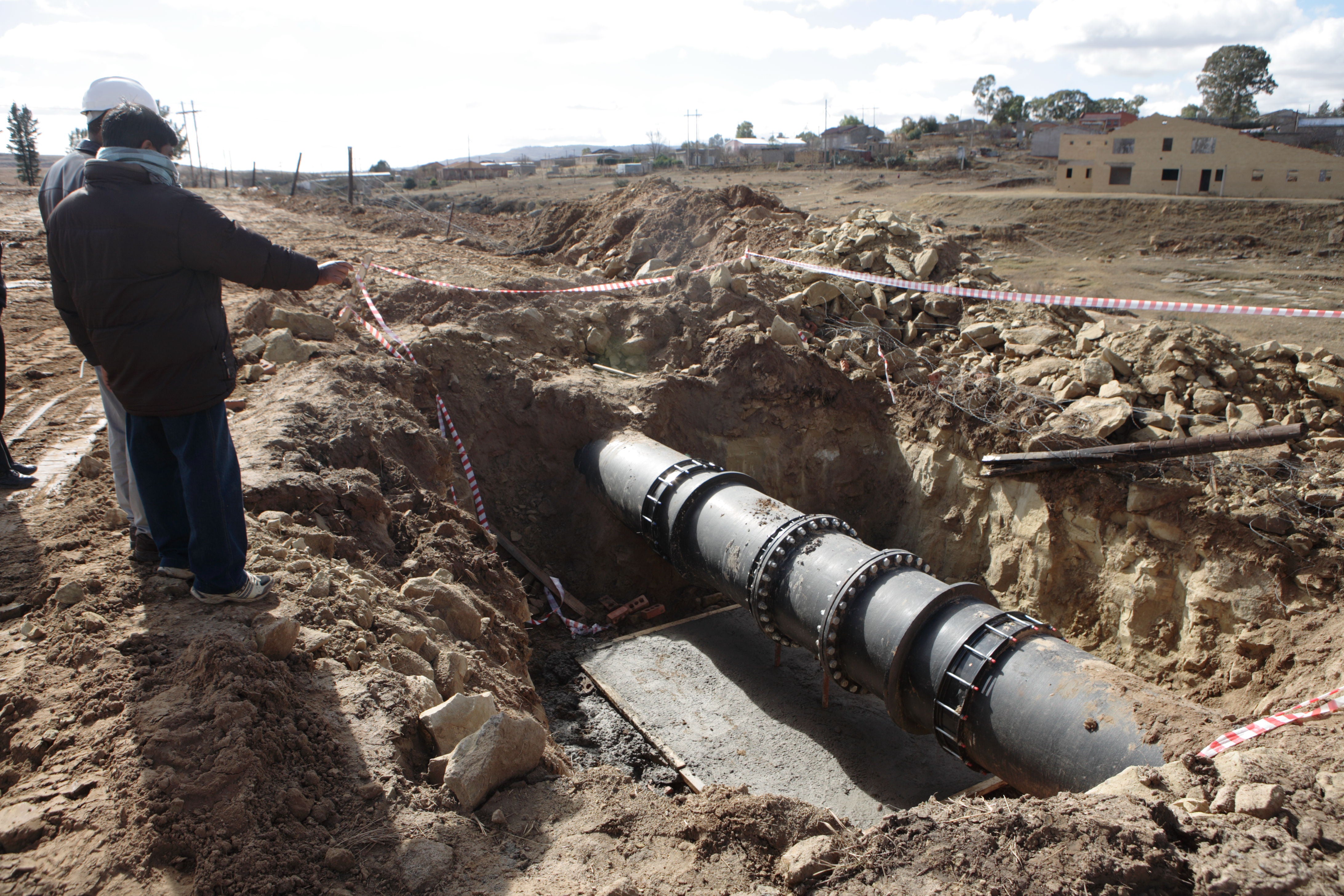
examples of work funded by Global Water
Security & Sanitation Partnership (GWSP),
a multi-donor trust fund. The GWSP gets
knowledge flowing to and from
implementation via first-rate research
and analysis.
What motivates poor policy and investment decisions? Why do supposedly good policies not translate into practice? And how can we avoid perpetuating pitfalls between policy and pipes?
Our new paper ‘Aligning Institutions and Incentives for Sustainable Water Supply and Sanitation Services’, produced with the support of the Global Water Security and Sanitation Partnership (GWSP), examines precisely these issues. Through research, analysis, and case studies, the report posits that genuine, sustainable progress in water supply and sanitation service delivery is complex, iterative, and multi-faceted. Whether it’s expanding access, improving efficiency, or providing better services – all reforms require their own unique blend of policies, institutions and regulations and all take place in the context of their own unique enabling environment.
Let’s start by looking at policies. We studied the processes for defining sector and national policies, from decentralization to private sector participation, and found that while policies are well intentioned, they often fail because they are not harmonized with the reality on the ground. Policy is often set without aligning national objectives with the required resources. Ambitious sector strategies are developed with little consideration for how or by whom they will be implemented, nor how they will be financed.
That brings us to the second focus area of our report: Institutions. Institutions are commonly defined as the social, political, and economic relations governed by rules and norms. Simply put – institutions comprise the formal and informal rules of the game, which in turn impact the quality and sustainability of services. There are many factors that determine whether a policy succeeds or fails, but weak institutional capacity is often chief among them. ‘Capacity is king’ is a well-worn expression in the water sector, and capacity-building is, of course, crucial for sustainable reforms.
When it comes to regulation, the third focus, we need to understand the emerging paradigms of regulating public service providers and creating incentives for achieving universal access. Regulation, which has traditionally aimed at protecting consumers from high prices and low service quality (natural to a monopoly like water) is also now needed to promote the financial sustainability of service providers, whether public or private. This balancing act between affordability and sustainability can be done through various models and is highly context specific. The key is to allow for regulation that promotes policy enforcement in an impartial manner, whether through tariff changes, allocating subsidies, or monitoring service quality.
And of course, because the water and sanitation sector is inherently complex, many issues fit in more than one type of mechanism. For example, decentralization or privatization are policy decisions, but they also shape the institutional arrangements and regulatory framework. Recognizing these interlinkages and interplay is vital because delivering sustainable water and sanitation solutions is like trying to solve a Rubik’s Cube, where even one small tweak can produce a big change, and every part of the cube needs to fit appropriately with all the other parts of the cube to achieve the end goal.

If institutions are the rules of the game, then incentives have a huge impact on how the game is played, and both these elements interact with and shape one another These motivating influences or stimuli (think carrots and sticks) drive actors – be they organizations, ministries, service providers, or individuals – to pursue certain objectives or behave in a certain way. They can emanate from the broader enabling environment, including political economy factors or governance structures. This means that the constraints to reform and the appetite for change often lie outside the water sector’s players, requiring that reforms are championed at a higher level or in harmonization with other sector stakeholders. Another output of the PIR (Policies, Institutions, and Regulations) initiative compares the various outcomes of country incentive frameworks in South America. We will share more examples via this blog as the initiative develops.
These drivers for reform – and in turn, the types of reforms initiated – do not arise in a vacuum. They are instead influenced by different factors. These may be endogenous; drivers for reform that arise from political processes within the country in question. Or they may be exogenous; some sort of shock or another external driver.
Finally, the report examines the feedback loop between the enabling environment and the policy, institutional and regulatory reforms. This feedback loop is a real-time cycle where thoughtful planning, implementing, evaluating, learning and adapting helps us take the right lessons from both failures and successes. It allows us to test our ideas and then adapt them, depending on what the feedback loop tells us. The feedback loop has different pathways, will involve reversals as well as advancement and is an iterative, dynamic process. Much like development progress itself, in fact.
The report reflects much of the thinking around ‘Doing Development Differently’ – rapid learning cycles, working in problem-driven and context-appropriate ways and focusing on best fit as much as best practice. We hope it will help decision-makers and stakeholders think through how to incentivize effective and sustainable service delivery to achieve a water-secure world for all.




Join the Conversation